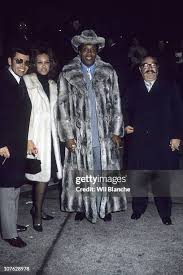The Life and Legacy of Frank Lucas

Introduction
Frank Lucas, a name synonymous with notoriety, is perhaps best known for his role as a prominent drug lord in the United States during the late 20th century. His life story, marked by crime, ambition, and a quest for respect, encapsulates the complexities of the American drug trade and its impacts on communities across the nation. As the landscape of crime in America continues to evolve, understanding figures like Lucas is critical for grasping the historical context of drug trafficking.
The Rise of Frank Lucas
Born in 1930 in La Grange, North Carolina, Frank Lucas moved to Harlem in the 1940s, where he would eventually establish himself as a key player in the heroin trade. Rising through the ranks of the infamous Lucchese crime family, Lucas broke away to create his own distribution network. He became notorious for his unique approach: he imported heroin directly from Southeast Asia, using the military’s airlift operations during the Vietnam War to smuggle the drug into the United States.
By the early 1970s, Lucas was at the height of his power, controlling a substantial share of the heroin market in New York City, estimated to be worth billions. His methods of operation, which included low pricing and minimal connections to organized crime, enabled him to corner the market and expand his influence. His story gained renewed attention and notoriety with the 2007 film ‘American Gangster,’ starring Denzel Washington, which portrayed Lucas’s dramatic rise and eventual downfall.
The Downfall and Arrest
Despite his initial success, Lucas’s empire began to crumble due to escalating law enforcement efforts. In 1975, after a prolonged investigation, Lucas was captured by federal authorities and sentenced to 70 years in prison. However, he cooperated with the FBI in bringing down other drug dealers, resulting in a reduced sentence.
Legacy and Impact
Lucas’s life raises vital questions regarding the socio-economic conditions that fostered the rise of drug abuse and trafficking in America. His story is emblematic of the challenges faced by law enforcement and communities grappling with addiction and crime. Additionally, it opened dialogues about the impact of the drug trade on urban environments, highlighting the often tragic narratives behind the statistics.
Conclusion
Frank Lucas passed away in June 2019, but his legacy continues to influence contemporary discussions on drug trafficking and criminal justice. His life story serves as a compelling reminder of the dark allure of power and wealth, the consequences of crime, and the ongoing fight against illegal drug activities in society. As future generations grapple with these issues, Lucas’s life remains a relevant cautionary tale about the dangers of crime in pursuit of the American Dream.









